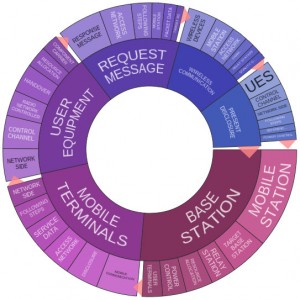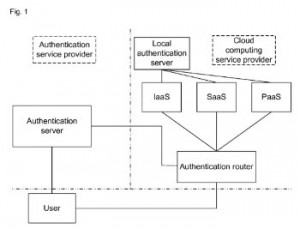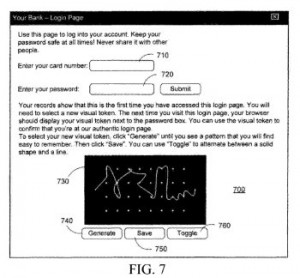 In the world of smartphones, it’s looking like paranoia is becoming much more profitable in recent years. Huge security breaches at major corporations around the world have made people everywhere much more aware of the technological risks they run in their own daily lives. We’ve already reported on the value of patent portfolios focused on mobile device security here on IPWatchdog. Now some data being reported by media information firm Thomson Reuters is forcing us to rethink the common notion that Apple and Samsung are dominant within the mobile innovation sphere.
In the world of smartphones, it’s looking like paranoia is becoming much more profitable in recent years. Huge security breaches at major corporations around the world have made people everywhere much more aware of the technological risks they run in their own daily lives. We’ve already reported on the value of patent portfolios focused on mobile device security here on IPWatchdog. Now some data being reported by media information firm Thomson Reuters is forcing us to rethink the common notion that Apple and Samsung are dominant within the mobile innovation sphere.
Now more than ever, it seems that consumers are supremely interested in making sure that the data processed by their smartphone or mobile device is as protected as possible. There are already some technologies which exist that can give smartphone owners a leg up on anyone trying to steal their device or data, such as wireless alarm proximity systems which can tell a user that a device has left a certain physical proximity of the owner or by simply taking advantage of authentication techniques made available through their device settings, a step many owners often forget to take.
It’s not just individual device owners who are not taking the necessary precautions to protect their data and business interests. An IBM study published under the title The State of Mobile Application Insecurity argued that about 40 percent of large companies are not taking the proper precautions to protect their mobile application services. About one-third of those large companies don’t test those apps before releasing them to customers over the Internet. The Massachusetts Institute of Technology recently published a report indicating that many apps, especially those available on Android systems, will secretly connect to ad sites and user tracking resources without the knowledge of users.
The U.S. federal government has attempted to be proactive when it comes to addressing the problems posed to enterprises and individuals by cybersecurity threats. Back in November of last year, we covered a joint meeting between the U.S. Patent and Trademark Office and the National Institute of Standards and Technology to discuss a voluntary framework for American businesses looking to address cybersecurity risks before they became exploited by a malicious party. Individuals who are wondering about the state of their personal smartphone can access online resources maintained by the Federal Communications Commission which provides a security checker that can analyze a smartphone’s security status and suggest actionable steps for improving smartphone security.
As the Thomson Reuters data that we saw points out, the past five years has seen an explosion in patents filed for cellular security technologies from about 100 in 2010 to about 1,000 in 2014. Further analysis of these technologies shows that most of this massive growth has been coming from the field of cellular privacy, although call monitoring technologies have been rising slightly as well.
[Companies-1]
The companies taking the lead charge in this sector, however, will likely be quite surprising to readers. Chinese telecom corporation ZTE (SHE:000063) holds a fair lead in this market with more than 160 patents granted over the five years studied for the Thomson Reuters report. An even bigger shock might be the fact that second place is held by the resurgent BlackBerry Ltd (NASDAQ:BBRY), a company which has earned 100 patents for cellular security technologies during the same period of time.
ZTE Corp. in particular is quietly becoming a major player in the international intellectual property market. When looking at 2014 patenting statistics for companies filing patent applications under the Patent Cooperation Treaty, ZTE Corp. was ranked 3rd in the world in filings since 2014. ZTE Corp. holds a patent portfolio which includes 40,851 active patents, which we know thanks to the IP analysis tools offered by Innography. Only 1,385 of those active patents have been granted by the USPTO but that still makes for a  fairly strong portfolio focused on wireless mobile communications according to the Innography text cluster posted here. As the cluster will show our readers, much of ZTE’s research and development which has entered the U.S. market focuses on mobile terminal and base station technologies. ZTE is also one of a number of Chinese companies, including Xiaomi and Huawei, that have been increasing their patenting activities in the U.S. “We will likely see more of ZTE, as well as some of these other Chinese companies with smartphone products in the U.S. in the future,” according to a patent analyst with Thomson Reuters.
fairly strong portfolio focused on wireless mobile communications according to the Innography text cluster posted here. As the cluster will show our readers, much of ZTE’s research and development which has entered the U.S. market focuses on mobile terminal and base station technologies. ZTE is also one of a number of Chinese companies, including Xiaomi and Huawei, that have been increasing their patenting activities in the U.S. “We will likely see more of ZTE, as well as some of these other Chinese companies with smartphone products in the U.S. in the future,” according to a patent analyst with Thomson Reuters.
ZTE’s growth in foreign markets has allowed the company to achieve some recent financial successes as indicated by the company’s first quarter earnings reports. The company enjoyed a 10 percent year-over-year increase in revenues for the company, increasing quarterly revenues to 21 billion renminbi, or about $3.38 billion USD. Much of ZTE’s innovative focus will be on developing technological solutions for smart city, big data, cloud computing and high-performance router products.
We noted a couple of patents issued to ZTE Corp. in recent months which display some of that company’s activities in developing privacy solutions for mobile telecommunications. U.S. Patent No. 8854414, titled Method, Application Server and System for Privacy Protection in Video Call, claims a method for privacy protection in a video call involves judging whether to perform privacy protection on a first terminal. If it’s determined that privacy protection should be performed, a substitute video is played in a media server so that a user privacy isn’t leaked to an unauthorized party. Privacy concerns involving cloud computing resources which could be accessed  through a smartphone is protected for ZTE Corp. by U.S. Patent No. 8898747, titled Authentication Routing System and Method for Cloud Computing Service and Authentication Router. This patent protects an authentication routing system for a cloud computing service which provides a consistent user authentication experience and a high level of authentication security which can ensure the privacy and security of a cloud computing resource user. We also found a ZTE patent issued in February 2013 related directly to cellular privacy in U.S. Patent No. 8374582, entitled Access Method and System for Cellular Mobile Communication Network. The method for accessing a cellular mobile communication network protected here involves carrying out a wireless authentication privacy infrastructure (WAPI) at a terminal of a wireless local area network (WLAN) that creates an authentication process between a terminal and a base station. This innovation introduces a technical scheme for implementing WAPI techniques into a cellular mobile communication system.
through a smartphone is protected for ZTE Corp. by U.S. Patent No. 8898747, titled Authentication Routing System and Method for Cloud Computing Service and Authentication Router. This patent protects an authentication routing system for a cloud computing service which provides a consistent user authentication experience and a high level of authentication security which can ensure the privacy and security of a cloud computing resource user. We also found a ZTE patent issued in February 2013 related directly to cellular privacy in U.S. Patent No. 8374582, entitled Access Method and System for Cellular Mobile Communication Network. The method for accessing a cellular mobile communication network protected here involves carrying out a wireless authentication privacy infrastructure (WAPI) at a terminal of a wireless local area network (WLAN) that creates an authentication process between a terminal and a base station. This innovation introduces a technical scheme for implementing WAPI techniques into a cellular mobile communication system.
There’s been quite a bit of recent news surrounding BlackBerry, the second-largest developer of mobile privacy technologies. The company had a large cellular privacy portfolio to begin with, which they’ll be adding to thanks to the purchase of Israeli software security solution developer WatchDox for an amount ranging from $100 million to $150 million. Comments from BlackBerry CEO John Chen indicate that the company is still looking to be competitive in the smartphone sector but rumors have been floating that mobile electronics giant Apple may be interested in acquiring the revitalized BlackBerry. “At this point it can be argued that the most attractive aspect of BlackBerry is their patent portfolio,” said a patent analyst at Thomson Reuters, “but considering the recent Rockstar outcome it will be interesting to see if Apple has the appetite for another large, mostly patent-related acquisition.”
Of BlackBerry’s currently held portfolio of 7,953 active U.S. patents, we were able to find at least 20 that related directly to the area of cellular privacy. A technology which gives enterprises some control over the phone calls placed over its various communication networks is at the center of BlackBerry’s U.S. Patent No. 8688084, titled System and Method for Integrating an Outgoing Cellular Call as an Enterprise Call. The patent claims a method operable on a wireless user equipment for facilitating integration of an outgoing cellular call as an enterprise call that involves blocking an incoming call to a user equipment and initiating an outgoing cellular call with the expectation of receiving a circuit-switched call from a network node within a time window. The technology allows  an enterprise to better track and monitor calls made by their employees from the enterprise’s communications networks. Readers who have ever had important passwords or other personal credentials stolen in the past may be interested to learn more about U.S. Patent No. 8984604, entitled Locally Stored Phishing Countermeasure. The client device claimed here includes a processor enabled to receive a verification file over a network so as to authenticate a website or other web-based resource. This technology, which can be implemented on smartphones and other computing equipment alike, can prevent phishing attacks on a client device user’s financial account information or other important credentials.
an enterprise to better track and monitor calls made by their employees from the enterprise’s communications networks. Readers who have ever had important passwords or other personal credentials stolen in the past may be interested to learn more about U.S. Patent No. 8984604, entitled Locally Stored Phishing Countermeasure. The client device claimed here includes a processor enabled to receive a verification file over a network so as to authenticate a website or other web-based resource. This technology, which can be implemented on smartphones and other computing equipment alike, can prevent phishing attacks on a client device user’s financial account information or other important credentials.
Although both ZTE and BlackBerry have raced out to grab the lead in smartphone security tech, their positions are by no means unassailable. Both companies have a relatively lower percentage of citations per patent grant than companies such as LG, AT&T and Nokia, indicating that the technologies from those companies are being used to set the standard for R&D in smartphone security. Additionally, Ericsson and Qualcomm have 92 and 88 smartphone security patents, respectively. As ZTE and BlackBerry’s patent application filings have gone down in this field from their 2011 high water mark, Ericsson and Qualcomm have been the two most active players in this sector since 2012. Ericsson in particular has been able to increase its cellular security patent grants from about 25 in 2013 to close to 50 so far for the combined years of 2014/15. Samsung and Huawei have also been increasing their activities in this area relative to both ZTE and BlackBerry, according to Thomson Reuters. “If Ericsson and Qualcomm begin incorporating more security features into their components then there will probably not be as much incentive for the handset makers [ZTE/BlackBerry] to continue focusing in this area,” a Thomson Reuters patent analyst said. “We may already be seeing this shift in where the feature will be delivered in handsets that will be on the market soon, and this could be impacting patenting rates.”

![[IPWatchdog Logo]](https://ipwatchdog.com/wp-content/themes/IPWatchdog%20-%202023/assets/images/temp/logo-small@2x.png)

![[Advertisement]](https://ipwatchdog.com/wp-content/uploads/2024/04/Patent-Litigation-Masters-2024-sidebar-early-bird-ends-Apr-21-last-chance-700x500-1.jpg)

![[Advertisement]](https://ipwatchdog.com/wp-content/uploads/2021/12/WEBINAR-336-x-280-px.png)
![[Advertisement]](https://ipwatchdog.com/wp-content/uploads/2021/12/2021-Patent-Practice-on-Demand-recorded-Feb-2021-336-x-280.jpg)
![[Advertisement]](https://ipwatchdog.com/wp-content/uploads/2021/12/Ad-4-The-Invent-Patent-System™.png)







Join the Discussion
4 comments so far.
apple airport
July 3, 2015 10:23 amI blog frequently and I seriously appreciate your content.
Your article has really peaked my interest.
I will take a note of your website and keep checking for new information about once a week.
I subscribed to your RSS feed as well.
Frank
May 18, 2015 05:31 pmThanks for the response and links Steve. You mention an app that will check permissions etc. The way the public are shorn of their data is a subject that I find fascinating. I came across several news articles recently talking about Smartphone Apps that covertly connect to user tracking and Ad Sites. I summarised it here.
http://frank-ok.blogspot.co.uk/2015/05/smartphone-apps-are-secretly-connecting.html. There soon will be an app that may help curb some of the grosser practices enjoyed by the less than honest app developers.
While I agree that there are agencies and interested parties in both the USA and Europe that are shining more light on privacy abuse I still see a distinct lack of awareness amongst consumers regarding the data mining practices of all the social networks. It will be an interesting few years as we see how it plays out.
Steve Brachmann
May 18, 2015 12:59 pmHi Frank. You make a good point, consumers often aren’t aware of the data which they’re handing over. It’s been my experience that most people just gloss over terms & conditions, especially for Facebook or Google services which most of their personal networks are already using. I don’t think a lack of understanding, however, necessarily leads us to assume that consumers aren’t interested in data privacy. The Federal Trade Commission has a web page dedicated to disseminating information on best practices for balancing data collection with personal privacy (https://www.ftc.gov/news-events/media-resources/protecting-consumer-privacy/ftc-privacy-report), so that’s an agency representing consumers which is interested in making sure that data is being collected securely and used responsibly. I’d also argue that the FTC complaint filed against TRENDnet in 2013 represents the result of consumer anger when a company fails to live up to its perceived data security standards. People might not fully understand the permissions they’re enabling, but that could make smartphone data security tech even more valuable in the long run. I wonder if people would pay for a service which analyzes the app permissions they’ve allowed and provides any feedback on their personal data security. Just a thought.
Frank O’Kelly
May 18, 2015 11:49 amHi Steve: Do you have any evidence, anecdotal or otherwise that ” consumers are supremely interested in making sure that the data processed by their smartphone or mobile device is as protected as possible”. My research has shown the opposite. Most people don’t understand enough about tech to even be aware that there could be security or privacy implications to using a smartphone. If the general public knew how Google, facebook, whatsapp, almost every app you can put on a smartphone mine their personal information they would probably react adversely but even then a lot of people say “so what, I have nothing to hide”.